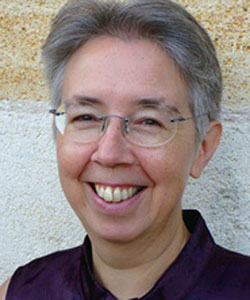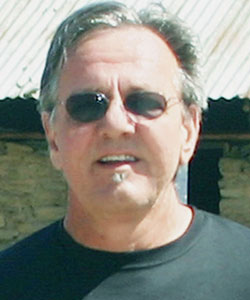 MARTINE BATCHELOR’s article “What Is This?” describes the Korean Zen practice of questioning, exploring how to apply the traditional koan to contemporary habits of mind. She says, “Questioning gives you energy because there is no place for the mind to rest. It allows for more possibilities and less certainty. If you meditate in this way, your mind will become more flexible, and you will start to see that you have more choices in your actions and behavior than you thought possible.” For some time, Martine has been interested in the limiting effects of habits and how meditation can help us to dissolve them creatively. Her most recent book is Let Go: A Buddhist Guide to Breaking Free of Habits.
MARTINE BATCHELOR’s article “What Is This?” describes the Korean Zen practice of questioning, exploring how to apply the traditional koan to contemporary habits of mind. She says, “Questioning gives you energy because there is no place for the mind to rest. It allows for more possibilities and less certainty. If you meditate in this way, your mind will become more flexible, and you will start to see that you have more choices in your actions and behavior than you thought possible.” For some time, Martine has been interested in the limiting effects of habits and how meditation can help us to dissolve them creatively. Her most recent book is Let Go: A Buddhist Guide to Breaking Free of Habits.
 MIKEL DUNHAM, a Tibet historian, reviews Warren W. Smith, Jr.’s China’s Tibet? Autonomy or Assimilation. “Given the Beijing Olympics, questioning China’s claim that Tibet is its possession has never been more relevant,” Dunham notes. “With approximately two hundred countries participating in the Olympics, it also may be the perfect time to reflect on the universality of stronger nations absorbing weaker ones and using historical revisionism as a means of justifying morally untenable conduct. The desire to prevail—whether over other individuals or other civilizations—is an arena in which we have all performed personal calisthenics.”
MIKEL DUNHAM, a Tibet historian, reviews Warren W. Smith, Jr.’s China’s Tibet? Autonomy or Assimilation. “Given the Beijing Olympics, questioning China’s claim that Tibet is its possession has never been more relevant,” Dunham notes. “With approximately two hundred countries participating in the Olympics, it also may be the perfect time to reflect on the universality of stronger nations absorbing weaker ones and using historical revisionism as a means of justifying morally untenable conduct. The desire to prevail—whether over other individuals or other civilizations—is an arena in which we have all performed personal calisthenics.”
 OLIVIA DONSTOV is 10 years old and just graduated from the fifth grade. Her reviews of Buddhist children’s books (“Samsara Dogs and Monkey Kings”) appear here. She says, “I’ve always wanted to be an author. I feel so honored to be writing for Tricycle, since this is my first chance to be published. I like to draw, read, write, and broaden my imagination. I love spending time with my parents and friends, who make me laugh until it hurts. I hope I can change the world with my writing and ideas in the future, as others have done.
OLIVIA DONSTOV is 10 years old and just graduated from the fifth grade. Her reviews of Buddhist children’s books (“Samsara Dogs and Monkey Kings”) appear here. She says, “I’ve always wanted to be an author. I feel so honored to be writing for Tricycle, since this is my first chance to be published. I like to draw, read, write, and broaden my imagination. I love spending time with my parents and friends, who make me laugh until it hurts. I hope I can change the world with my writing and ideas in the future, as others have done.
 CHRISTINA FELDMAN has for over thirty years guided numerous practitioners on personal and group retreats in the U.S. and Europe. Her article “Long Journey To a Bow” explores the challenges of overcoming the conceit of self. Feldman tells Tricycle, “I was inspired to write on the conceit of self simply because so little is written about it, yet it is one of the most persistent obstacles and places of clinging. To figure this one out is to understand the smile of the Buddha. It can be a profound, challenging and liberating practice to watch this reflex of conceit operating in our lives and practice.”
CHRISTINA FELDMAN has for over thirty years guided numerous practitioners on personal and group retreats in the U.S. and Europe. Her article “Long Journey To a Bow” explores the challenges of overcoming the conceit of self. Feldman tells Tricycle, “I was inspired to write on the conceit of self simply because so little is written about it, yet it is one of the most persistent obstacles and places of clinging. To figure this one out is to understand the smile of the Buddha. It can be a profound, challenging and liberating practice to watch this reflex of conceit operating in our lives and practice.”
Thank you for subscribing to Tricycle! As a nonprofit, we depend on readers like you to keep Buddhist teachings and practices widely available.